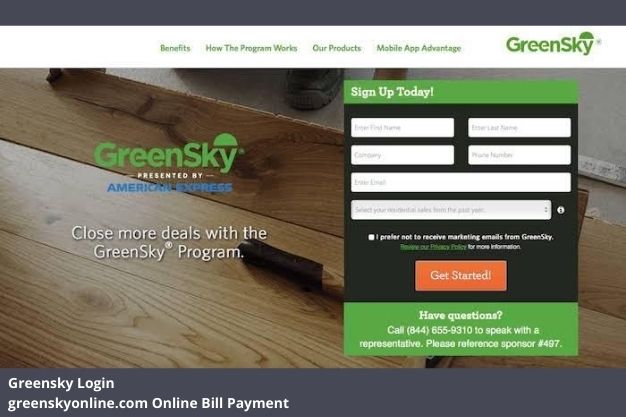Building a successful business requires the confluence of a series of factors. You need to assemble the right team at the right time, stay on top of your business rivals, communicate to your target market, and achieve your sales targets.
Since all these factors are so interconnected, it can be tough to pin down a single reason why a business may fail. But if one particular problem brings companies tumbling down, it’s securing the proper funding to sustain operations.
According to a study done by the U.S. Bank, an estimated 82% of small enterprises fail because of challenges associated with their cash flow.
When you think about it, it is a very fair argument since no business can survive without steady cash flow. Even though inadequate business cash flow may be the last nail on the coffin, it’s also fair to say that the lack of cash flow can be the symptom of other underlying problems.
The Challenge of Cash Flow
Challenges such as ageing accounts receivable or past-due client invoices can lay a heavy dent in a company’s cash flow. Even if clients frequently pay their invoices on time, the period between the payment terms SMBs (small and medium-sized businesses) provide to their clients and when the invoices are paid can prove overwhelming.
Another challenge SMBs experience is the competition they face from big corporations. These companies often use net payment terms to flex their might at smaller companies by offering lenient net payment terms in the market because they can afford to.
On the other hand, small businesses often struggle to sustain themselves if clients extend their due dates. These businesses need this money to pay suppliers and make payroll while trying to take on more clients.
Such scenarios cause SMBs to suffer tremendously. And because they don’t want to risk souring a business relationship in an already competitive market, they hesitate to constantly make follow-ups lest they lose their clients because of bothering them.
Fortunately, there are various financial tools available to small business owners to help cover working cash deficits. Receivable factoring is one such business financing possibility for businesses that offer net 30, net 60, or net 90 payment terms to their clients.
Let’s take a deeper look into receivable factoring.
Receivable Factoring as a Solution
Receivable factoring is a type of business funding that helps companies fill gaps in cash flow to get the money they need to keep the business operational.
It is a financial transaction where a company sells its outstanding invoices (accounts receivables) to a financing company (a factor). The factor buys the invoices at a discount and proceeds to give the selling company a cash advance, usually around 70% to 90% of the invoice value.
The factoring company will then collect payment on the invoice from the billed client.
To gain a better understanding of how receivable factoring works, here’s an example of a factoring transaction that can paint a clear picture:
Say you have $350,000 on an outstanding invoice with 45-day terms. As a small business owner, you’ll probably be too occupied to do regular follow-ups. But at the same time, you can’t afford to delay your cash flow.
To take the invoice off your hands, you get in touch with a factor who buys your invoice for 90% of the invoice value and holds the remaining 10%. This means that you’ll receive $315,000 In your bank account while the lender keeps $35,000.
The factor will charge you a processing fee, say 2%, or $7,000. Depending on the terms of your agreement and the factor, you might end up paying a small factoring fee. If your customers pay up the invoice after 14 days, the factor will deduct a factor fee of 1%, or 3,500.
In total, the factor will keep $10,500 of the $35,000, then forward the balance of $24,500.
What an innovative way of accessing funds tied up in your invoices, right? The potential of receivable factoring can be challenging for any company to resist.
Here are five benefits you can expect from receivable factoring.
Can Protect Your Business from Bad Debt
Any experienced business owner will tell you how lousy debt can affect a successful business. Bad debts occur when clients fail to pay you for services rendered, and many companies in such situations have not been able to recover.
Not only is lousy debt an incredible drain on company resources, but it can also damage your cash flow severely.
Debt can either make or break your business, and when it comes to outstanding invoices, prevention is always better than cure. As such, you must have suitable systems and processes set up to protect your business as soon as possible.
One such protective measure is signing up with a receivable factoring company. One feature that comes with factoring is that it allows a business to peep into a potential client’s creditworthiness. This insight will help you determine whether a client will be likely to pay you or not.
Higher Chances of Approval
If you’ve ever been to the bank to apply for a loan, then you must be aware of how frustrating the experience can be, especially if you are in urgent need of the money.
You’ll have to fill an enormous amount of paperwork, and the wait time can be excruciatingly long. You might even find that you did not qualify for the loan after waiting for three weeks for the money to reflect in your account.
If you were to consider getting a partner or a venture capitalist to buy into your business, it would mean you are losing a share of a company that you’ve built from the ground up.
But with invoice factoring, you don’t have to jump any hoops to receive your cash advance. There is no collateral needed from your end, and the process is finalized within a matter of days, if not hours.
Receivable Factoring Helps Save Both Time and Money
The hassle of creating invoices, following up invoices, and collecting the payments can consume a company’s valuable resources in money, time, and labour.
The good news is that there are factors that will be more than happy to unburden you from these responsibilities. They will even take care of some of these services at no extra cost too!
Once the factor has bought the invoices, they will be responsible for collecting payments. This service is catered for by the factoring fee. This will give you the flexibility to focus on other aspects of the business that are in more need of your attention, such as growing your company and finding new clients.
By outsourcing these services, you also won’t have to spend company resources on hiring staff to handle those responsibilities. You can direct the money towards other operational costs such as marketing or paying for office space.
Access to Quick Cash Flow
Perhaps the most important benefit of factoring is that it provides your business with immediate cash.
Having to wait a month or two to receive payment for a service your company has already provided can cause you immense inconvenience. The upside is many factors provide quick advance process times, usually within 24 to 48 hours.
This allows you to access the money you’ve worked for in full well before your clients are due. What’s better about this is that your line of credit can increase the more invoices you factor and your clients pay their invoices in time.
If you sign up early in advance before finding yourself in a situation where you could do factoring services, your process time will be even faster than if you started from scratch.
You Don’t Have to Pay the Money Back
Although factoring is, in fact, a form of financing, the truth is you don’t have to pay back the advance received. After all, it’s not money you’ve received as a loan; you’ve earned it from your hard work.
The only way you’ll have to pay it back is if you take a recourse factoring agreement.
Let’s break it down.
Factoring companies usually offer either recourse and non-recourse factoring.
Resource factoring dictates that if the invoiced client cannot pay invoices owned by a factor, the business is meant to buy back the outstanding invoice(s). Simply put, the company is intended to refund the cash advance received during the transaction process.
But with non-recourse factoring, the factor takes the entire liability of the invoice. Consider it as an unconventional form of insurance. Non-recourse factoring is a bit more expensive because it poses a higher risk to the factor.
Finding a Reliable Receivable Factoring Company
The market is full of receivable factoring companies with various prices, offering different functions. As you scout for an ideal factor, try and look for one you can feel is interested in the success of your business regardless of the size of your business.
This way, you’ll be able to tap into the potential benefits of factoring as listed above.




